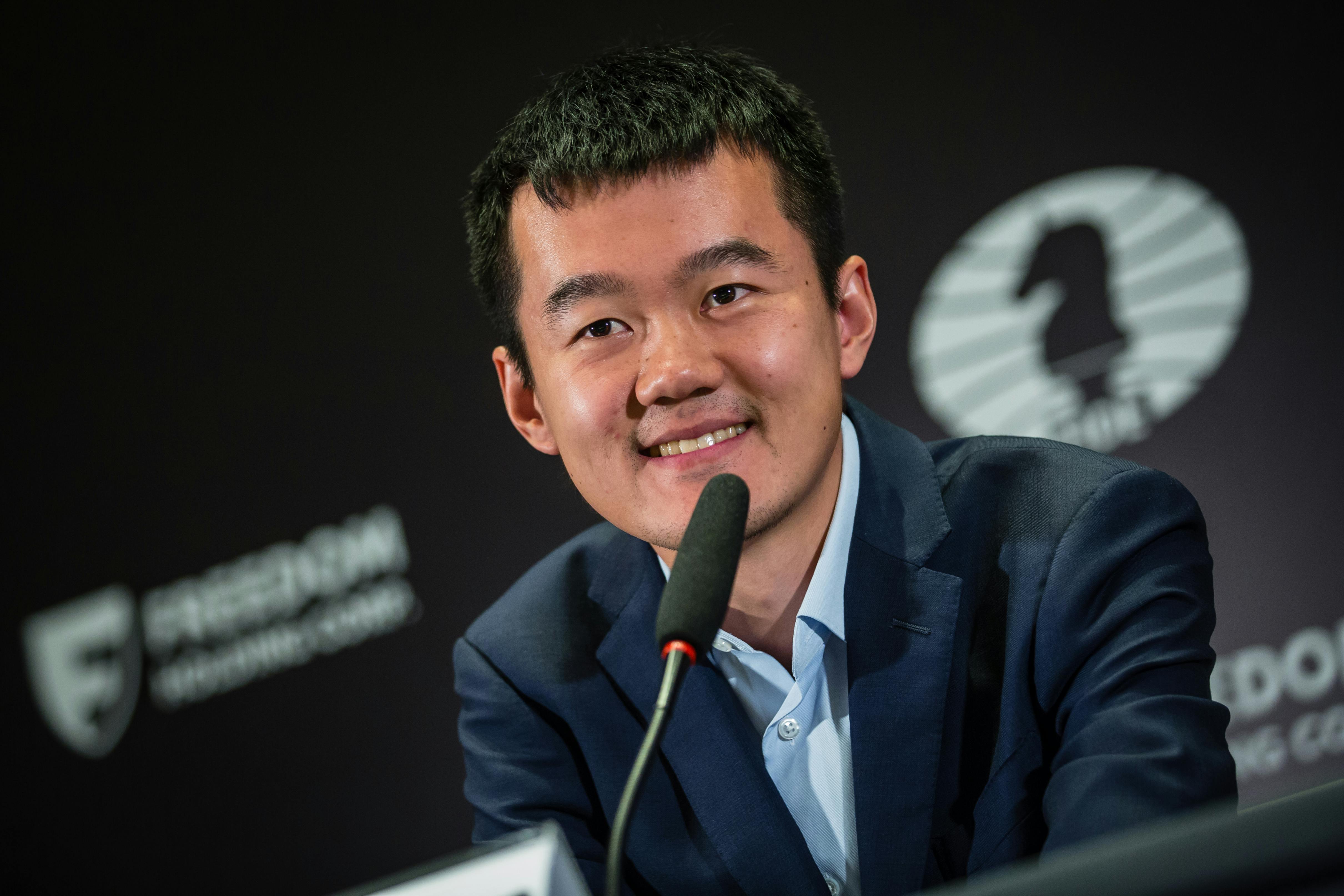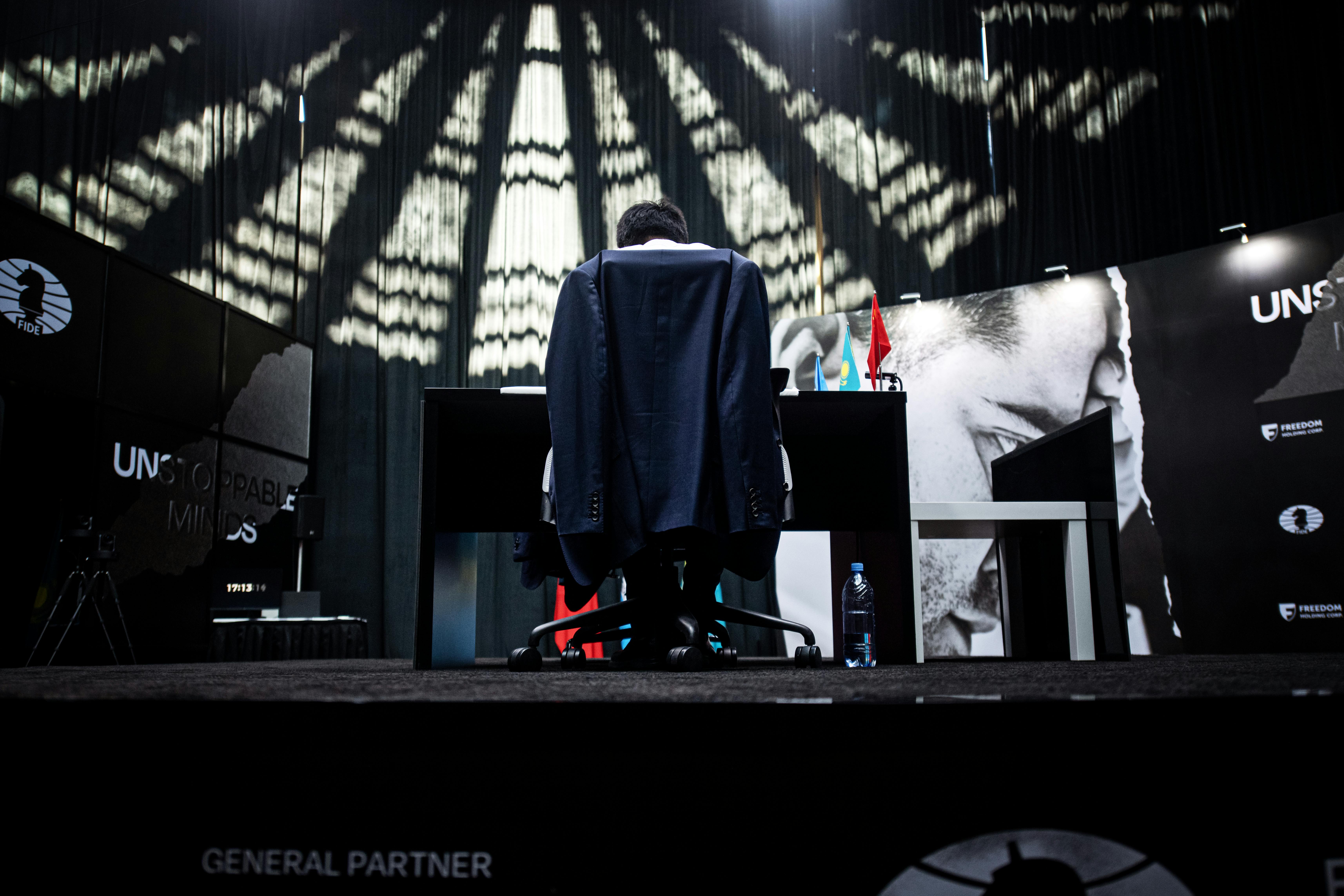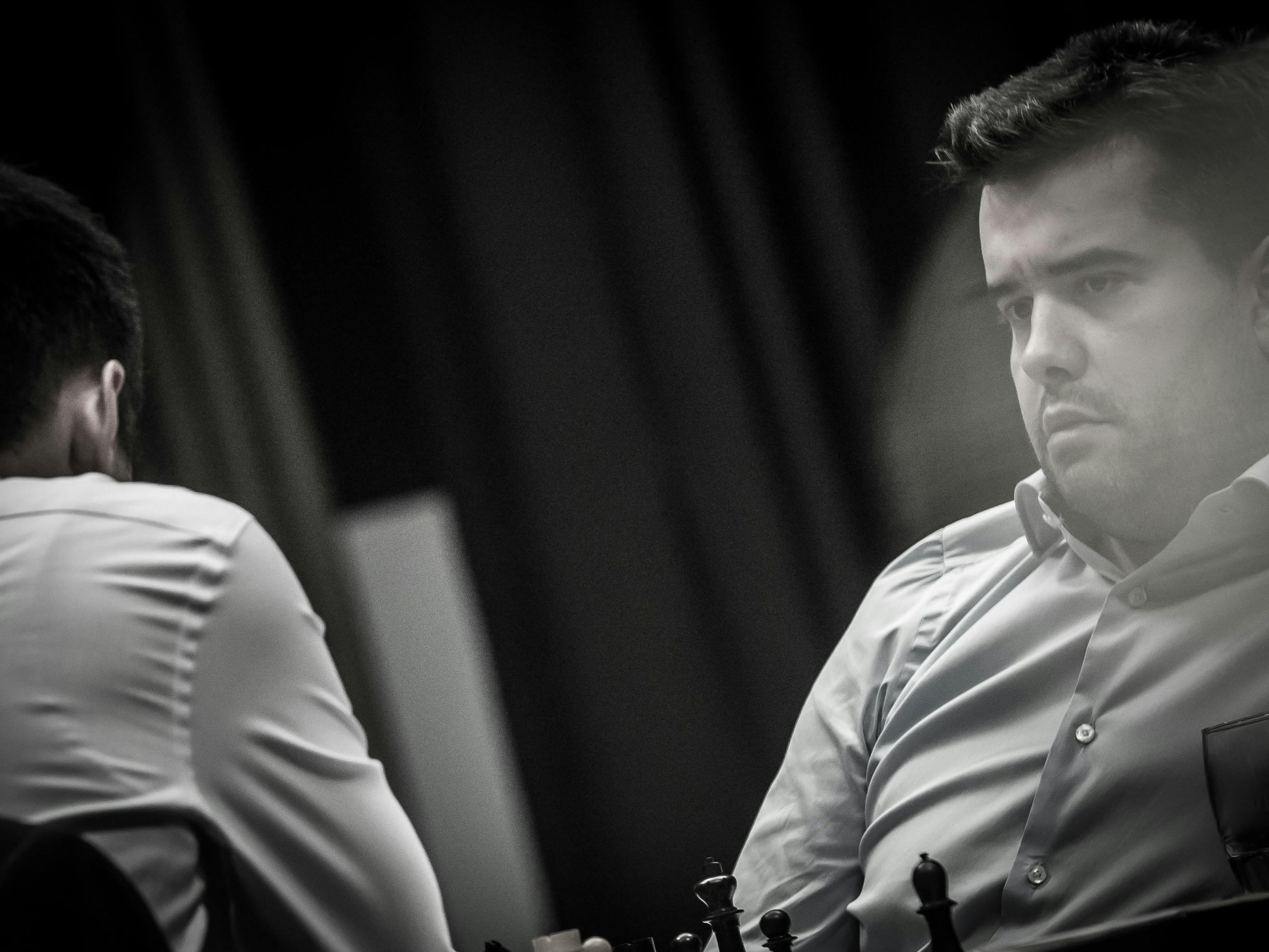World Chess Championship: Games 3 and 4 - A New Hope?
A recap of Games 3 and 4 of the ongoing World Championship between Nepomniachtchi and Ding, with annotations by GM David Navara

Games 3 and 4 of the 14-game match between Ian Nepomniachtchi and Ding Liren have just been played in Astana, the capital of Kazakhstan. The winner will be crowned as the new World Champion in classical chess, following Magnus Carlsen’s abdication of the title.
The schedule of games can be found here, with Lichess providing a live broadcast transmission of all games. Read below for detailed thoughts and annotations on the games from GM David Navara – one of the strongest players in the world (FIDE Rating: 2676, World Rank: 59), along with more general impressions given on the tournament so far.
Game 3
The annotations by David Navara are provided in the embed below, with a direct link to the study available here.
https://lichess.org/study/SkQqKSso/t9bzSaMp
In Games 1 and 2, things were looking dire for Ding – in a very touching and human series of interviews and press conferences, he readily shared he was feeling anxious and depressed with the pressures of the match and the end of a personal relationship. With his psychology in flux, Ding didn’t look comfortable and after losing Game 2, had an uphill struggle ahead of him.
With a rest day to recover, where he apparently listened to the discography of Bob Dylan with his second, Richard Rapport, (Blowin’ in the Wind is Ding’s favorite) – it was important for Ding to stop the bleeding in Game 3.
Nepomniachtchi chose a surprising opening weapon with 1. d4, something he plays rarely. The players entered a line Ding had played against Giri in online rapid in 2022 (with that encounter ending in a draw), and while it felt Ding had a little more momentum, the position was overall balanced. It can be a risk to over push, with the main consideration for Ding being simply to put the loss behind him.

(Photo - FIDE / Stev Bonhage)
A repetition was made and accepted, with neither player willing to take an unnecessary risk. For Ding, the most important objective was achieved, securing a draw with the black pieces after coming off a loss.
Psychologically, Ding seems to have recovered, spending more time at the board and being more comfortable answering interview questions.
Game 4
The annotations by David Navara are provided in the embed below, with a direct link to the study available here.
https://lichess.org/study/SkQqKSso/MeY7tGG0
A more confident looking Ding with white opened with 1. c4, perhaps seeking vengeance for his earlier loss against Nepomniachtchi in the 2022 Madrid Candidates, which began with the same opening move.
They opted for a line which Ding’s second, Richard Rapport, had coincidentally played and won with in 2013. Ding diverged with 11. O-O finding an improvement from Rapport’s game. During the press conference, Ding confirmed he found this move over the board, with his preparation ending at 9… Nf4. The position looked promising for white with a strong pawn center and with black’s pieces being uncoordinated.

(Photo - FIDE / Stev Bonhage)
Tension remained high, with a position the engine gave a perfectly equal evaluation to, where Ding’s pawn sacrifice was compensated with a positional advantage. From a human perspective, the pressure was on Nepomniachtchi to find the best move each time in a very defensive position, whereas Ding had more freedom and a greater range of perfectly good candidate moves.
In our preview, we highlighted Nepomniachtchi can seemingly suffer from lapses in concentration when making committal moves in complex drawn positions, and perhaps can suffer from frustration in positions where he has passivity. This seemed to arise with 28… Nd4 – a blunder Ding was quick to capitalize on. The position quickly became hopeless for Nepomniachtchi – and Ding secured an important victory, taking the overall score to 2 – 2 with 10 games left to play.
Snap verdict
Supporters of Ding will have much more to reassure them about Ding’s play from the last two games. While there is still a long way to go in this match and it remains anyone’s tournament, the results in these two games and his overall demeanor suggest more of a return to his usual level of play.
It will now be Nepomniachtchi’s turn to dig deep and find psychological resilience after what must be a disappointing loss for him and his team. Losses have historically also been a struggle for him, having been prone to “tilt” in the past. But the rest day will give him an opportunity to recover – and then it will be his turn to stop the bleeding.
For spectators, the score equalizing is only a positive; it makes it more probable that fighting chess will continue to be seen, from two players who can be very volatile. However, given the seemingly remarkable psychological recovery from Ding, the author believes the momentum is now with him.
To overcome such pressures and stress at this level and then come back with a necessary win only days later shows signs of that mental fortitude and stability Ding was renowned for returning to him. From what we’ve seen in these first four games, if Ding has no relapse, an overall victory for him feels not just possible but more likely.
Lichess is regularly running World Championship Thematic Arenas on the days of the tournament - with positions taken from the games. Make sure you follow our social media to see when the next one will be!
(Title photo - FIDE / Stev Bonhage)